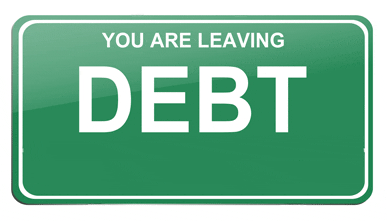When a relationship ends, the financial impact can be as stressful as the emotional one.
Many people discover that debts they managed together are overwhelming when paid alone. If you’re exploring your options, a good starting point is understanding how a consumer proposal in Ontario can restore financial stability.
Debt becomes hard to manage after a separation when:
- Household income drops suddenly, but the debts remain the same.
- One partner stops contributing to joint loans or shared credit cards.
- Legal costs, moving expenses, and new housing increase monthly pressure.
- Joint accounts remain active, causing confusion about who should pay what.
- Old arguments about money resurface, making communication difficult.
A consumer proposal helps by replacing uncertainty with a clear, legal plan that fits your new budget. To see how interest and collections are paused, visit how interest stops in a proposal.
How a Consumer Proposal Reduces Post-Separation Debt
A proposal lets you settle unsecured debts for less than you owe and spread repayment over up to five years.
This can make a major difference when you are adjusting to life after separation, especially if your expenses increased while income dropped. If you’re unsure whether you qualify, read our guide on who qualifies for a consumer proposal.
A proposal helps by:
- Cutting the total amount you owe, often to around 30% of the balance.
- Eliminating all interest, preventing balances from growing while you get back on your feet.
- Stopping collection activity from joint unsecured loans and credit cards.
- Combining all qualifying debts into one simple monthly payment.
- Giving you predictable payments so budgeting becomes easier.
This creates a manageable path forward and helps you rebuild independently. For a full overview, visit how to file a consumer proposal.
What Happens to Joint Debt After Divorce or Separation
Many people are surprised to learn that banks do not honour separation agreements.
Even if your ex-partner promises to pay a joint debt, the creditor will still hold both of you responsible. Our detailed page on secured and unsecured debt explains why certain joint debts qualify.
A consumer proposal helps with joint debt because:
- Your portion of the debt is settled inside the proposal.
- Creditors cannot pursue you for the remaining joint balance.
- Your ex-partner becomes responsible for their portion only.
- Collectors must stop contacting you, even if the other person does not pay.
- You gain legal protection that does not depend on your ex’s choices.
This allows you to move forward without being tied to the other person’s financial behaviour.
More examples of how proposals affect families appear in our page on successful consumer proposal clients.
How a Proposal Helps With Debts Created During the Breakup
The end of a relationship often leads to new debt—moving costs, legal bills, and setting up a new home. Our guide to how proposals work explains how these debts can be included.
A proposal can include these types of debt when:
- The costs were placed on credit cards or lines of credit.
- You borrowed to furnish a new home or pay legal fees.
- You used credit to make ends meet during the transition.
- Temporary living expenses forced you to use credit more than usual.
- Your ex stopped contributing and you were left covering everything.
A proposal helps you clean up these debts and regain stability more quickly. For details on timelines, see the consumer proposal recovery timeline.
When a Proposal Is Better Than Trying to Split Debt
Many separating couples try to divide debt based on fairness, but creditors do not follow those agreements.
If you’re unsure which option is best for your situation, our page on consumer proposals vs. bankruptcy may help.
A proposal is usually the better choice when:
- You cannot rely on your ex to pay their share of joint debt.
- You want legal protection that does not depend on the other person.
- Your income changed and payments are no longer affordable.
- Stress from debt is affecting your wellbeing during the breakup.
- Negotiating with your ex is impossible or causing conflict.
A proposal lets you separate your finances cleanly and focus on rebuilding your life.










